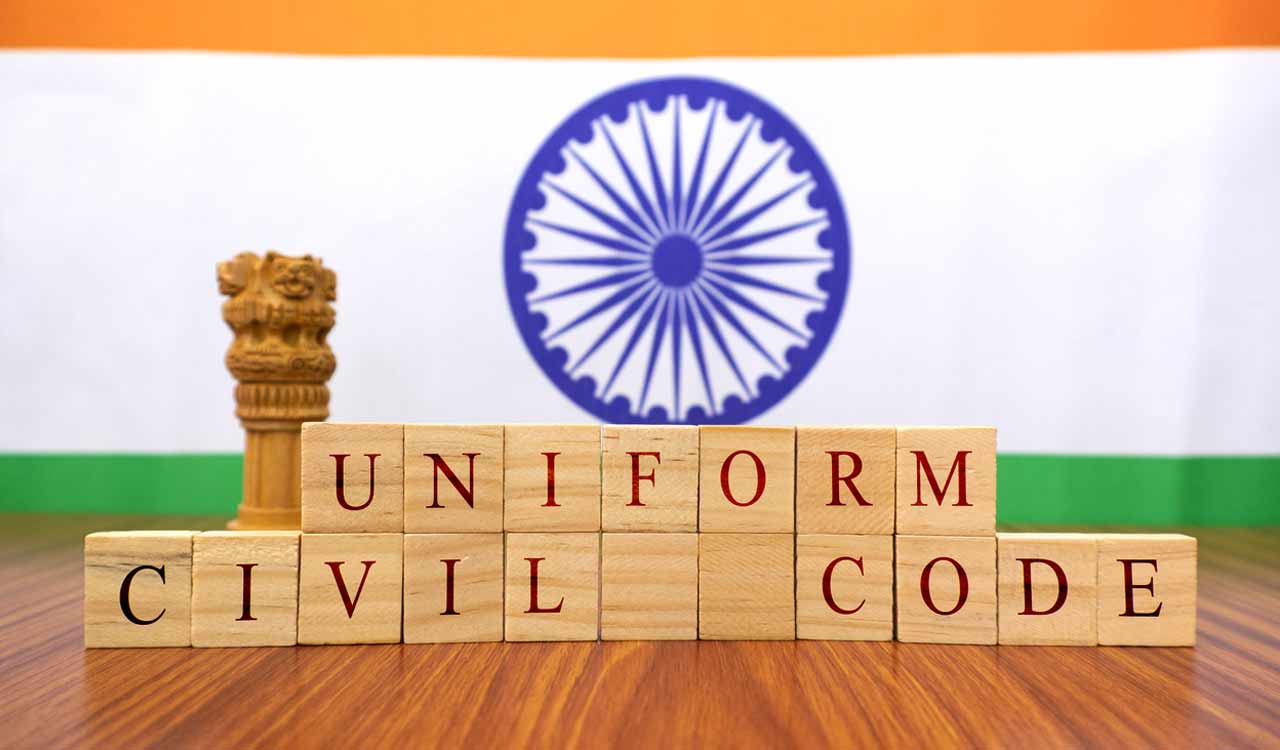Though UCC was made part of the Directive Principles, one must keep in mind the contemporary realities before embarking on such sensitive reforms
Published Date – 8 February 2024, 11:30 PM

Uttarakhand, the first State in the country to adopt the Uniform Civil Code (UCC), will serve as a testing ground for the BJP to assess the larger impact of the radical move, ahead of the Lok Sabha elections. It has been one of the core agendas of the saffron party. In its manifesto for the 2019 elections, the BJP had promised to draft a UCC for the entire country, “drawing upon the best traditions and harmonising them with the modern times”. While the Common Civil Code was listed among the Directive Principles in tune with Article 44 of the Constitution, successive governments have refrained from going ahead with the idea in view of the sensitivities involved. Now, the BJP-ruled Uttarakhand has passed the UCC Bill which proposes a common law on marriage, divorce, land, property and inheritance for all citizens — irrespective of their religion. However, it comes across as regressive because it proposes strict regulation of live-in relationships. The proposed legislation makes it mandatory for both partners to submit a statement to the registrar on their relationship within a month after they start living together, failing which they will face a prison term of up to three months or a fine, or both. This harsh provision runs the risk of being misused to target live-in couples. By seeking to criminalise non-registration of a live-in relationship, the proposed new law faces the danger of being misused, based on a complaint by a third party.
The Uttarakhand’s UCC defines live-in relationships as a relationship in the “nature of marriage” between a man and a woman cohabiting in a shared household, and requires compulsory registration. The Registrar may require the parties to submit the statement of live-in relationship, through a notice, on his/ her own motion or on a complaint filed by a third party. While it may serve as a model for other BJP-ruled States to implement the UCC, the nationwide implementation, however, poses major challenges. Though UCC was made part of the Directive Principles, one must keep in mind the contemporary realities before embarking on such sensitive reforms. The challenge before the governments is how to harmonise a plethora of customs and social mores prevalent in a diverse society. It is clear that the BJP wants to garner political mileage out of this sensitive issue at a time when the country is already reeling under myriad challenges on social and economic fronts. One must recognise the fact that the world, by and large, is moving towards accepting diversity, instead of imposing uniformity. This is particularly relevant for open, liberal and democratic societies. India, home to different religions, customs and cultures, has been a role model to the world for its unity in diversity. Mere existence of difference does not imply discrimination but is indicative of a robust democracy.




